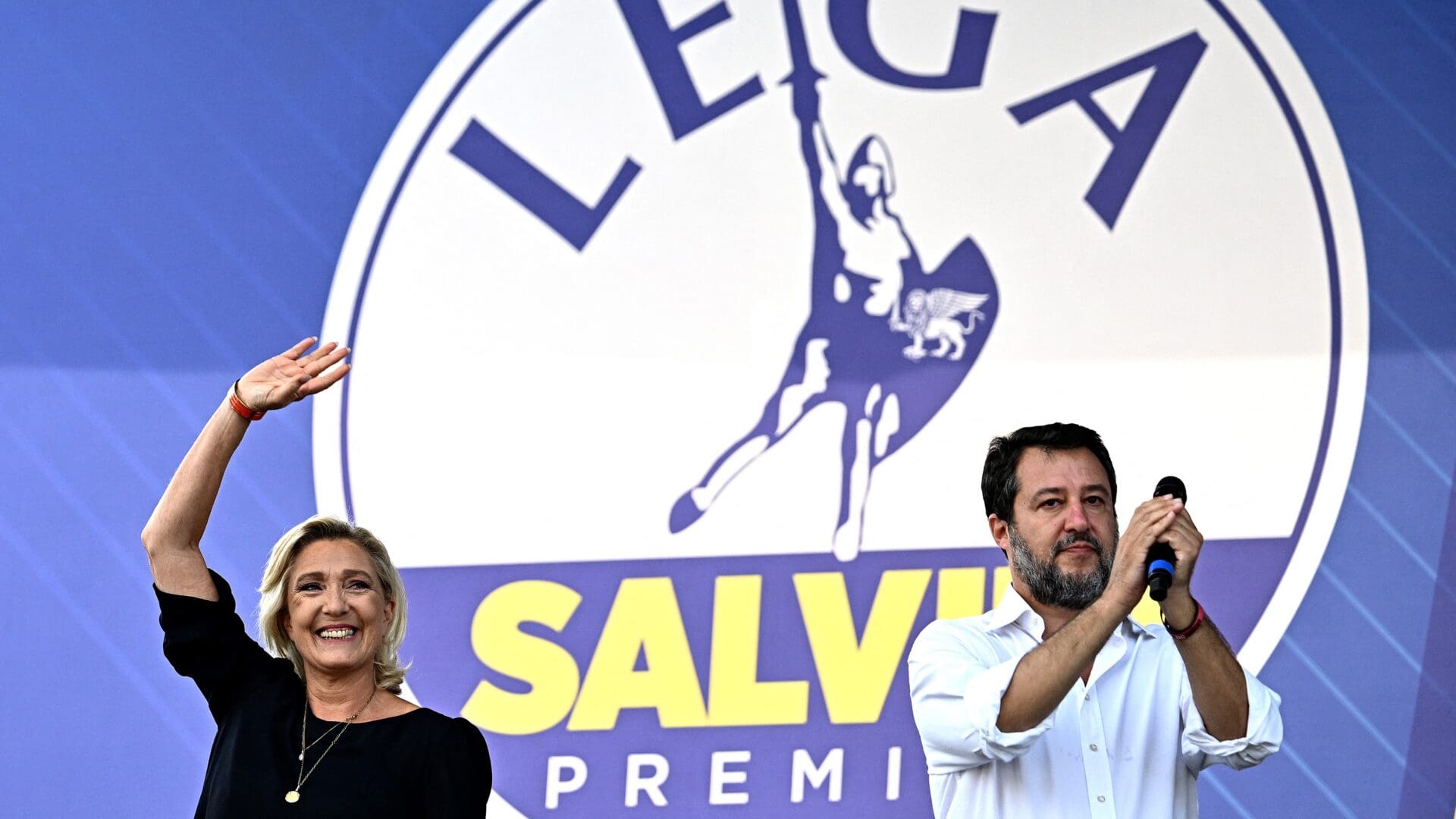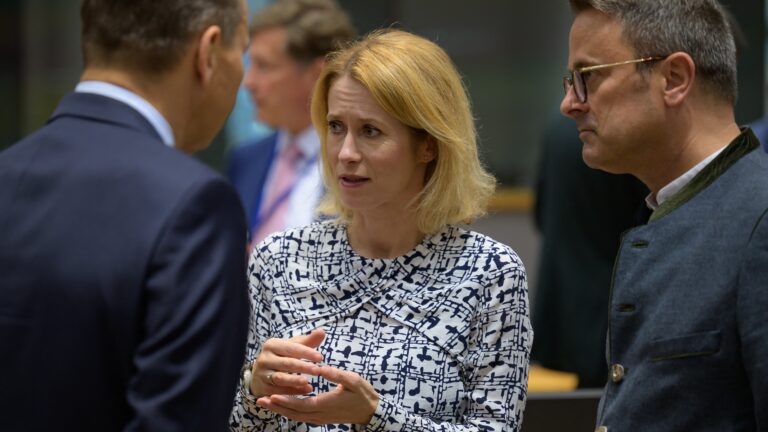After the mixed results of 2023, 2024 could be a year of success for the European right. In addition to the European elections, parliamentary elections will be held in many countries across the continent, including Belgium, Romania, Croatia, Austria, and Portugal. Right-wing parties stand a good chance in all of these elections, and if the current momentum can be seized with tangible results achieved in 2024, a significantly different European position on key issues could emerge in the future.
The centre of the European right has clearly shifted southwards in recent years, particularly towards Italy.
This is exemplified by the fact that two out of the three right-wing European political groups—the European People’s Party (EPP), the European Conservatives and Reformists (ECR), and Identity and Democracy (ID)—have Italian presidents and significant Italian connections. On the other hand, the electoral victory of Giorgia Meloni in the autumn of 2022 provided the initial impetus for the right-wing turn that is expected to be carried out into 2024.
Unusually for an Italian government, the Meloni cabinet spent its first year without a significant loss of popularity. The Brothers of Italy (FdI), the largest party in the coalition led by the Prime Minister, even managed to increase its support, currently standing at 29 per cent, compared to 26 per cent in September 2022, according to Politico’s polling averages.
Alongside Meloni, one of the most prominent figures on the European right is Matteo Salvini, the president of the Italian Lega party, currently polling at 9 per cent. Although his party is part of the ID political group, Salvini’s long-held ambition is to unite the forces of the European right into a single new party. To achieve this goal, the Italian politician has held several meetings with Prime Minister Viktor Orbán, and the foundations of the aforementioned idea were laid during a meeting with the Hungarian Prime Minister and former Polish Prime Minister Mateusz Morawiecki.
Fidesz could play a crucial role in the creation of a new European right-wing force, as, while the party's EP caucus has not been affiliated with any political group since 2021, it is still undoubtedly the strongest right-wing party in Europe.
Current polls suggest that the EPP, ID, and ECR combined would win 339 seats in the 2024 elections, representing a strong minority. However, this projection does not account for the newly emerging right-wing parties, such as the Alliance for the Union of Romanians (AUR), or the Confederation, which performed slightly worse than expected in the Polish elections.
It will also be crucial to observe whether Fidesz finds a group, or if a potential pan-European right-wing party is formed. Additionally, there may be a shift in the traditional grand alliance between the EPP and the Socialists and Democrats (S&D), which has dominated European politics in recent years.
In the same vein, the European Parliament recently approved the European Council's decision to increase the number of seats in the Parliament from 705 to 720. According to this decision, the new seats are going to be distributed among 12 Member States, including France, Poland, Spain, and Austria—countries where right-wing parties have a significant chance of success in the upcoming summer elections.
Speaking of southern states, 2023 cannot be considered a very successful year for the Spanish right. Although the People's Party (PP) led by Alberto Feijoó won the early elections in July, the poor showing of the right-wing Vox meant that it had little chance of forming a government. Since then, Socialist Prime Minister Pedro Sánchez has brought the country to the brink of civil war after granting amnesty to separatist Catalan leaders and promising quasi 'independence' for the region.
However, the right-wing parties stand a good chance in the EP elections, with the PP polling at 37 per cent, seven percentage points ahead of the Socialists; while Vox is neck and neck with the far-left Sumar at 11 per cent.
Portugal will also be worth paying attention to regarding the strengthening of the right, particularly with the Chega party led by André Ventura. The party has been surging since the 2022 elections, increasing its support by around eight percentage points. This has made it the third-largest party in Portugal, and it has a good chance of participating in its first European election this summer.
André Ventura was in Hungary not so long ago, in May, for bilateral talks with PM Viktor Orbán. In an interview with Demokrata, Ventura said, '
We need to build bridges between Identity and Democracy and the European Conservatives and Reformists
to formally or informally create a large conservative bloc that can work towards building the largest parliamentary group.'
Of course, France is not to be overlooked in the significant European right-wing landscape, especially considering it holds one of the highest number of seats in the European Parliament, with 81. The 'eternal promise' of the right, Marine Le Pen, and her party, the National Rally (NR), now led by Jordan Bardella, are leading the polls, surpassing Emmanuel Macron's party by nine points. However, the right has consistently been the largest minority in France in terms of domestic politics.
Despite consistently having a good chance of winning every election in recent years, they have always faced defeat. Nevertheless, this dynamic might change in the upcoming EP elections. In addition to NR, it is important to highlight the right-wing publicist Éric Zemmour's party, Reconquest, which currently sits at 5 per cent.
A strong showing by these two forces could elevate the French right to a leading position in European politics.
The real right-wing 'renaissance' is unfolding in German-speaking countries like Germany, Austria, and the Netherlands.
In recent years, Alternative for Germany (AfD) has evolved from a party with a few per cent of the vote to the second-largest party in the EU's leading country. What makes this particularly interesting is that AfD did not actually have to do anything extraordinary to achieve this; the ineptitude of the governing parties and their total disregard for the interests of the electorate have driven disillusioned Germans into the arms of AfD. The party currently stands at 22 per cent, second only to the Christian Democrats (CDU/CSU), and has become an influential force in local politics.
In our western neighbour, Austria, a similar political landscape is taking shape, marked by the dominance of right-wing parties. A notable success story is the ascent of the Austrian Freedom Party (FPÖ), which, like the AfD, has gained momentum due to controversial and unpopular measures implemented by the governing parties, particularly on issues such as migration and the handling of the COVID-19 pandemic. Currently, the FPÖ commands a 30-per-cent support, while the governing Austrian People's Party (ÖVP) ranks as the third most popular party, trailing behind the Social Democrats with 21 per cent.
Of course, we cannot overlook the Netherlands. In the November 2023 elections, Geert Wilders' Party for Freedom (PVV) secured a massive victory. The politician, renowned for his anti-immigration views, has strong ties to Hungary; his wife is of Hungarian origin, and he enjoys a close friendship with Viktor Orbán. Notably, last year, he even spent the holidays in Hungary. Although the PVV currently lacks MEPs in the European Parliament, if current trends persist until the summer, it could emerge as a significant player in a potential right-wing shift in Europe.
Central and Eastern Europe has long served as a stronghold for the European right.
The enduring alliance and cooperation between Fidesz, which has maintained a stable government in Hungary since 2010, and the Polish Law and Justice (PiS) party, in power for two terms, have defined relations in the region for many years.
The harmony between the Hungarian-Polish axis was somewhat strained due to the war in Ukraine, where the parties held differing positions on the conflict. Moreover, last October, despite winning the most votes in the Polish elections, PiS failed to form a government.
The upcoming EP elections could potentially improve PiS's position, as they remain the most popular party in the dominant state of Eastern Europe.
It is also crucial to monitor the new Polish right-wing force, the Confederation.
Led by Slawomir Metzen, the party experienced a disappointing outcome in the October elections, securing only seven per cent of the vote, while various polls had projected it getting 15 per cent in the summer. The upcoming EP elections may serve as a defining moment for them, as the quality of their performance could determine their continued engagement in this form of politics.
In Central Europe, there appears to be a resurgence of smaller right-wing parties, as reported by Mandiner. A notable example is the Slovak National Party (SNS), led by Robert Fico, which emerged as the popular winner in the elections at the end of September and, unlike PiS, also managed to successfully form a government. Meanwhile, in Romania, the AUR, renowned for its anti-Hungarian stance, is steadily gaining popularity. The latter raises numerous questions about how the AUR could cooperate with Fidesz in a potential pan-European right-wing party and whether the two parties could establish relations akin to what we have witnessed in the case of the SNS.
Read more:








